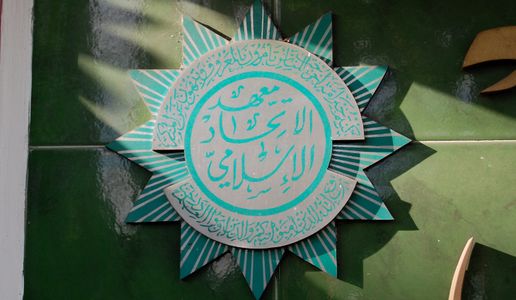Menchik in Mizan Project: The Politics of Translation in Indonesia
Jeremy Menchik, Assistant Professor of International Relations at the Fredrick S. Pardee School of Global Studies at Boston University, discussed the politics of translation in Indonesia, focusing on an April 1954 issue of the Indonesian Muslim periodical Al-Muslimun which featured an unusual translation from Arabic into Indonesian of a well-known verse from the Qur’an.
Menchik discussed the translation in a March 31, 2016 article on The Mizan Project entitled “Do Not Take Unbelievers as Your Leaders” The Politics of Translation in Indonesia.
From the text of the article:
I want to use this example about the politics of translation to illustrate some larger points about interpreting sacred texts. I have recently published a book on Islam and tolerance in Indonesia, Islam and Democracy in Indonesia: Tolerance without Liberalism (Cambridge University Press, 2016). After learning about my book, and my research on Muslims and tolerance, it is common for people to ask, “What does the Qur’an say about tolerance?”
That question requires at least three answers. One is that the Qur’an, or any other scripture, has no single meaning. Within any scripture, including the Qur’an, there are passages that support interreligious conflict (e.g., Q.2:120, 3:28, 4:58; 42:1) and passages that support interreligious cooperation (Q.2:62, 2:213, 4:163, 5:43, 5:47). Sacred texts are always multivocal. A second answer is that within Sunnī, Shīʿī, modernist, traditionalist, or Islamist interpretations of the Qur’an, there are influential arguments for embracing non-Muslims as equals and influential arguments for embracing only fellow Muslims. Those positions are varied, but all positions are authentic interpretations of the Qur’an.
My third and most important answer is that on any question, there are a vast variety of ways in which the Qur’an can be understood. The task of the scholar is to show how the Qur’an speaks to particular people in particular contexts, rather than as a timeless or universal set of directions. The task of the scholar is, therefore, to investigate how specific communities of Muslims, in specific times and in specific places, understand the lessons of the Qur’an.
You can read the entire article here.
Jeremy Menchik‘s research interests include comparative politics, religion and politics, Southeast Asia, and the Middle East. His book Islam and Democracy in Indonesia: Tolerance without Liberalism was published from Cambridge University Press in 2016 and explains the meaning of tolerance to the leaders of the world’s largest Islamic organizations in order to understand how their values shape politics in a Muslim-majority democracy.
